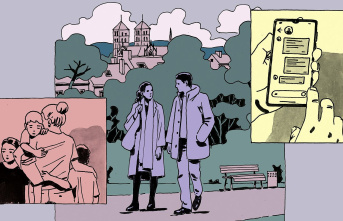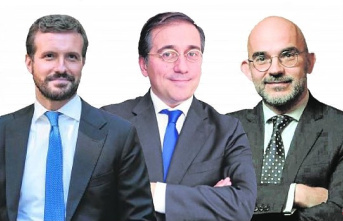Popular culture is full of time travel stories, including many that are told through television, movies and literature. It is an old idea, however. One could argue that Oedipus Rex, a Greek tragedy written over 2,500 years ago by Sophocles, is the first time travel story.
Is time travel possible? This is a valid question, given the popularity of the idea. As a theoretical physicist I see that there are many possible answers to this question. Not all of them are contradictory.
Time travel is impossible because it would be impossible to do. It is prohibited by laws of physics like the second law on thermodynamics and relativity. It would require a lot of energy, but it is technically possible.
There is also the matter of time-travel paradoxes; we can--hypothetically--resolve these if free will is an illusion, if many worlds exist or if the past can only be witnessed but not experienced. Time travel may not be possible because it must flow linearly and we don't have control over it. Or maybe time travel is an illusion that is irrelevant.
Physics laws
We would love to believe that relativity prohibits time travel, since Albert Einstein's theory about relativity, which describes the nature and effects of time, space, gravity, is our most fundamental theory of time. Kurt Godel (an Institute of Advanced Study colleague) invented a universe where time travel wasn't just possible but was also possible.
Although we can design time machines, most of them require negative energy or negative mass. This is not possible in our universe. A tennis ball with negative mass will drop upwards if you drop it. This argument is quite unsatisfactory as it explains why time travel cannot be achieved in practice by using another idea, such as negative energy or mass. We don't really understand this concept.
Frank Tipler, a mathematical physicist, conceptualized a time-machine that doesn't involve negative mass but requires more energy than what exists in the universe.
The second law of thermodynamics states that time travel violates the law of entropy, or randomness. Time can only move one way, which means that you can't unscramble eggs. More precisely, when we travel into the past, we go from now (a high-entropy state), into the past which must have lower levels of entropy.
Arthur Eddington, an English cosmologist, originated this argument. It is best to be incomplete. It may stop you from traveling back in time, but it doesn't say anything about the possibility of traveling to the future. It is as difficult for me to travel next Thursday as it was to travel last Thursday.
Resolving paradoxes
It is clear that paradoxes are possible if time travel could be done freely. One of the most well-known paradoxes is the "grandfather paradox". This is where one could use a time machine to travel back in time and kill their grandfather, eliminating any chance of them having their own children. Logically, it is impossible to exist simultaneously and not exist.
Kurt Vonnegut's anti-war novel "Slaughterhouse-Five," published in 1969, describes how to evade the grandfather paradox. Since one cannot kill his grandfather in the past because he wasn't killed in it, free will is impossible. Billy Pilgrim, the protagonist of the novel, cannot travel beyond his current world line (the timeline in which he exists), but he can't travel to any other point in time-space, so he couldn't even consider killing his grandfather.
The universe in "Slaughterhouse-Five" is consistent with everything we know. It is compatible with the second law of thermodynamics, and it does not conflict with relativity. It is not compatible with certain beliefs, such as free will. You can watch the past like a movie but cannot alter the actions of the people involved.
Would it be possible to allow actual changes in the past so that we could return and kill our grandfather or Hitler? Multiverse theories suggest that there may be multiple timelines for different universes. This idea is not new. In Charles Dickens' "A Christmas Carol", Ebeneezer Scrooge experiences both a shameful death as well as happiness.
Time is a river
Marcus Aurelius, Roman Emperor, wrote: "Time is like water made up of events that happen, and a violent flow; for as soon a thing is seen, it is taken away and another one takes its place. And this will also be taken away."
It is possible to imagine time flowing around every point of the universe like a river. It is not easy to prove the idea. A flow is a rate or change. The flow of a river refers to the flow of water over a specified length within a given time. Therefore, if time is considered a flow, it flows at a rate of 1 second per second. This is not very useful information.
Stephen Hawking, theoretical physicist, suggested that there must be a "chronology Protection Conjecture", a yet-unknown physical principle that prohibits time travel. Hawking's idea is based on the notion that we can't know what happens inside a blackhole because we can't get information out. This argument is redundant. We cannot time travel, because we can't time travel!
Researchers are currently investigating a fundamental theory where time and space "emerge” from another. Quantum gravity is also known as this, but it doesn't exist yet.
Is time travel possible? We don't know if it is possible, but we aren't sure.












